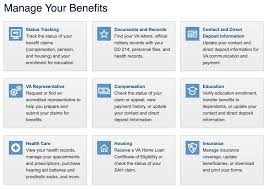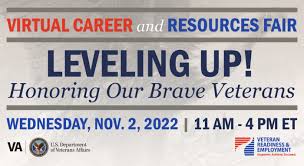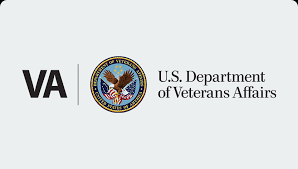Veterans Administration Survivor Benefits: Providing Support for Families
When a veteran passes away, their family members may be eligible for survivor benefits through the Veterans Administration (VA). These benefits are designed to provide financial support and assistance to the surviving spouse, children, and dependents of deceased veterans.
One of the key survivor benefits offered by the VA is Dependency and Indemnity Compensation (DIC). DIC provides a monthly payment to the surviving spouse, children, or parents of a veteran who died as a result of a service-related injury or illness. This benefit helps alleviate some of the financial burden that comes with losing a loved one who served in the military.
In addition to DIC, eligible survivors may also have access to other benefits such as education assistance, home loan guarantees, and healthcare coverage through programs like TRICARE. These benefits aim to provide comprehensive support to help survivors cope with their loss and maintain their quality of life.
It’s important for families of deceased veterans to understand their eligibility for VA survivor benefits and how to apply for them. The application process can sometimes be complex, but there are resources available to help guide families through it.
Overall, VA survivor benefits play a crucial role in honoring the service and sacrifice of our veterans by ensuring that their families are taken care of after they are gone. By providing financial assistance and support services, these benefits help ease the burden on bereaved families during difficult times.
Understanding Veterans Administration Survivor Benefits: Top 8 Frequently Asked Questions
- What are Veterans Administration survivor benefits?
- Who is eligible for Veterans Administration survivor benefits?
- How do I apply for Dependency and Indemnity Compensation (DIC) benefits?
- What is the amount of monthly payment under DIC benefits?
- Are there any additional benefits available to survivors of deceased veterans?
- What documentation is required to apply for VA survivor benefits?
- How long does it take to receive VA survivor benefits after applying?
- Can surviving spouses of veterans remarry and still receive survivor benefits?
What are Veterans Administration survivor benefits?
Veterans Administration survivor benefits are financial and support services provided to the surviving spouses, children, and dependents of deceased veterans. These benefits, such as Dependency and Indemnity Compensation (DIC), aim to offer monthly payments and assistance to those who have lost a loved one who served in the military. Additionally, VA survivor benefits may include access to education assistance, healthcare coverage, and home loan guarantees to help alleviate the financial burden and provide comprehensive support for eligible survivors. Understanding what Veterans Administration survivor benefits entail is crucial for families navigating the aftermath of losing a veteran family member.
Who is eligible for Veterans Administration survivor benefits?
Veterans Administration survivor benefits are available to the surviving spouse, children, and dependents of deceased veterans who meet certain eligibility criteria. Typically, those eligible for these benefits include the surviving spouse of a veteran who passed away due to a service-related injury or illness, as well as dependent children and parents in some cases. It’s important for family members of deceased veterans to understand the specific eligibility requirements set by the VA in order to determine if they qualify for survivor benefits and how to apply for them.
How do I apply for Dependency and Indemnity Compensation (DIC) benefits?
To apply for Dependency and Indemnity Compensation (DIC) benefits through the Veterans Administration, eligible survivors can start by completing VA Form 21P-534EZ, Application for DIC, Death Pension, and/or Accrued Benefits. This form collects important information about the deceased veteran, the survivor’s relationship to the veteran, and details about the veteran’s service and cause of death. Along with the completed form, applicants will need to provide supporting documents such as a copy of the veteran’s death certificate, marriage certificate (if applicable), and any relevant medical records. It is recommended to reach out to a VA representative or visit a local VA office for assistance with the application process to ensure that all necessary documentation is included for a smooth application experience.
What is the amount of monthly payment under DIC benefits?
The amount of monthly payment under Dependency and Indemnity Compensation (DIC) benefits provided by the Veterans Administration varies depending on the specific circumstances of the survivor and the relationship to the deceased veteran. DIC benefits aim to provide financial support to eligible surviving spouses, children, and parents of veterans who died as a result of a service-related injury or illness. The VA considers factors such as the survivor’s marital status, number of dependents, and any additional special circumstances when determining the exact amount of monthly payment. It is important for survivors to consult with the VA or a knowledgeable representative to understand their individual eligibility and potential benefit amounts under DIC.
Are there any additional benefits available to survivors of deceased veterans?
Survivors of deceased veterans may be eligible for additional benefits beyond the standard Dependency and Indemnity Compensation (DIC) provided by the Veterans Administration. These additional benefits can include education assistance, home loan guarantees, healthcare coverage through programs like TRICARE, and counseling services. These benefits aim to provide comprehensive support to help survivors cope with their loss and maintain their quality of life. It’s important for families to explore all available options and understand their eligibility for these additional benefits to ensure they receive the support they need during difficult times.
What documentation is required to apply for VA survivor benefits?
When applying for VA survivor benefits, specific documentation is typically required to support the application process. Commonly requested documents may include the veteran’s death certificate, marriage certificate (if applicable), birth certificates of dependent children, Social Security numbers of all family members, and any relevant military service records. Additionally, it is important to have proof of relationship to the deceased veteran and information regarding the circumstances of their death. Providing accurate and complete documentation is essential in ensuring a smooth application process for VA survivor benefits.
How long does it take to receive VA survivor benefits after applying?
The timeline for receiving VA survivor benefits after applying can vary depending on various factors, such as the complexity of the case, the completeness of the application, and current processing times. In general, it may take several months to receive a decision on VA survivor benefits applications. The VA strives to process claims as quickly as possible, but thorough review and verification of information are necessary to ensure that benefits are awarded accurately and promptly. Applicants can check the status of their application online or contact the VA for updates on the processing timeline.
Can surviving spouses of veterans remarry and still receive survivor benefits?
Surviving spouses of veterans can remarry and still receive survivor benefits from the Veterans Administration, as long as they meet certain criteria. To continue receiving benefits after remarriage, the surviving spouse must have reached the age of 57 before December 16, 2003, or have remarried on or after attaining that age. Additionally, if the remarriage ends due to death, divorce, or annulment, the surviving spouse may be eligible to have their benefits reinstated. It’s important for surviving spouses to understand these guidelines and requirements to ensure they continue to receive the support they are entitled to while navigating life after the loss of their veteran spouse.




